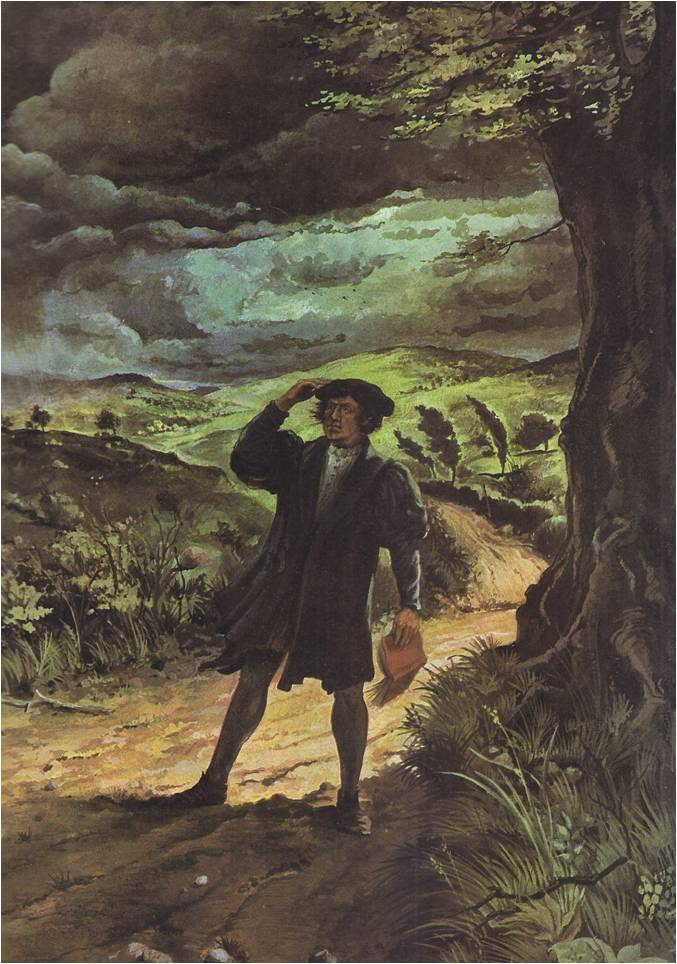There he sat in the great hall in the German city of Worms. His bright eyes and wide forehead gave him an air of distinction. You would not quickly forget that face. Before him was gathered an assembly of high ranking nobles and churchmen from many parts of Europe. For this man was Charles V, Emperor of the Holy Roman Empire, Archduke of Austria, ruler of the Netherlands and half of Italy, as well as King of Spain and master of Spain’s vast possessions in the New World. Yet Charles, who belonged to the famous Hapsburg family of Austria, was …
Read More »Tag Archives: Peace of Augsburg
The Monk from Wittenberg 1505-1546
ON A SULTRY JULY DAY IN 1505, a young law student, Martin Luther, was walking along a country road in Germany when a summer storm blew up. The air grew heavy and black clouds filled the sky. Before Luther could take shelter, thunder began to crash. A bolt of lightning struck the road almost at his feet. Thrown to the ground, he lay shaking, not certain whether he was alive or dead. “Help me, Saint Anne,” he cried, “help me and I will become a monk.” After a moment, Luther’s trembling stopped. He stood up, found that he was not …
Read More »
